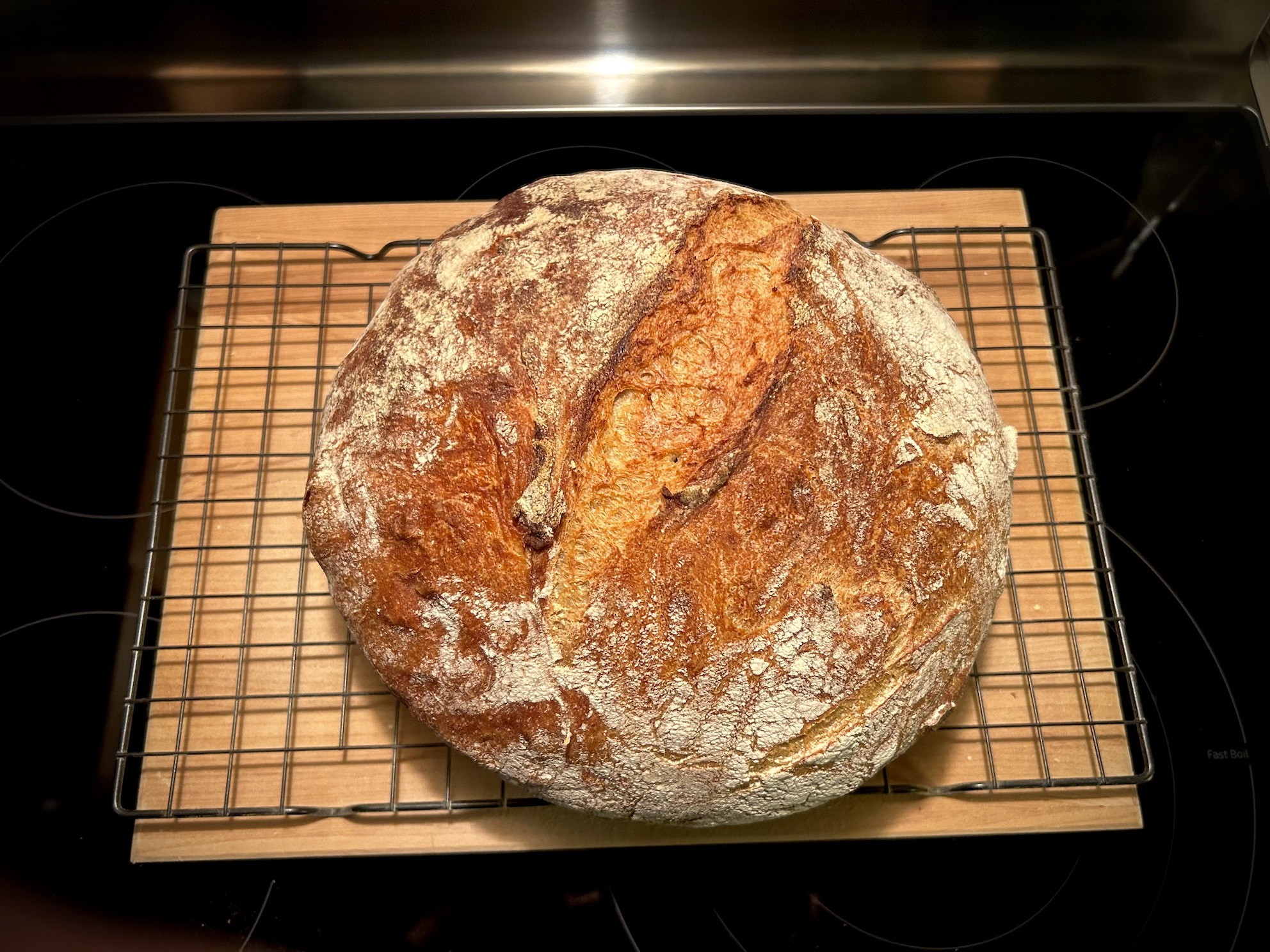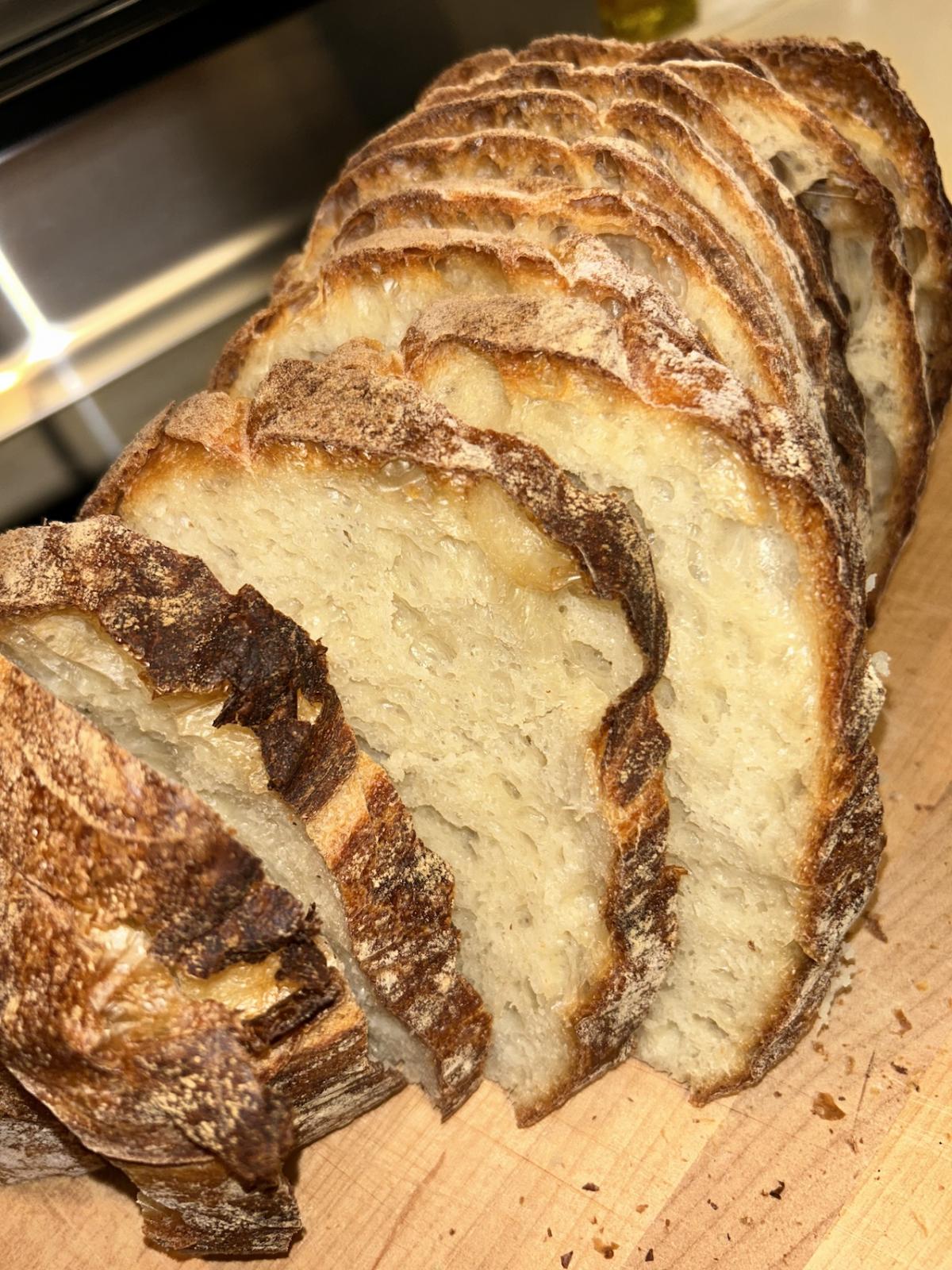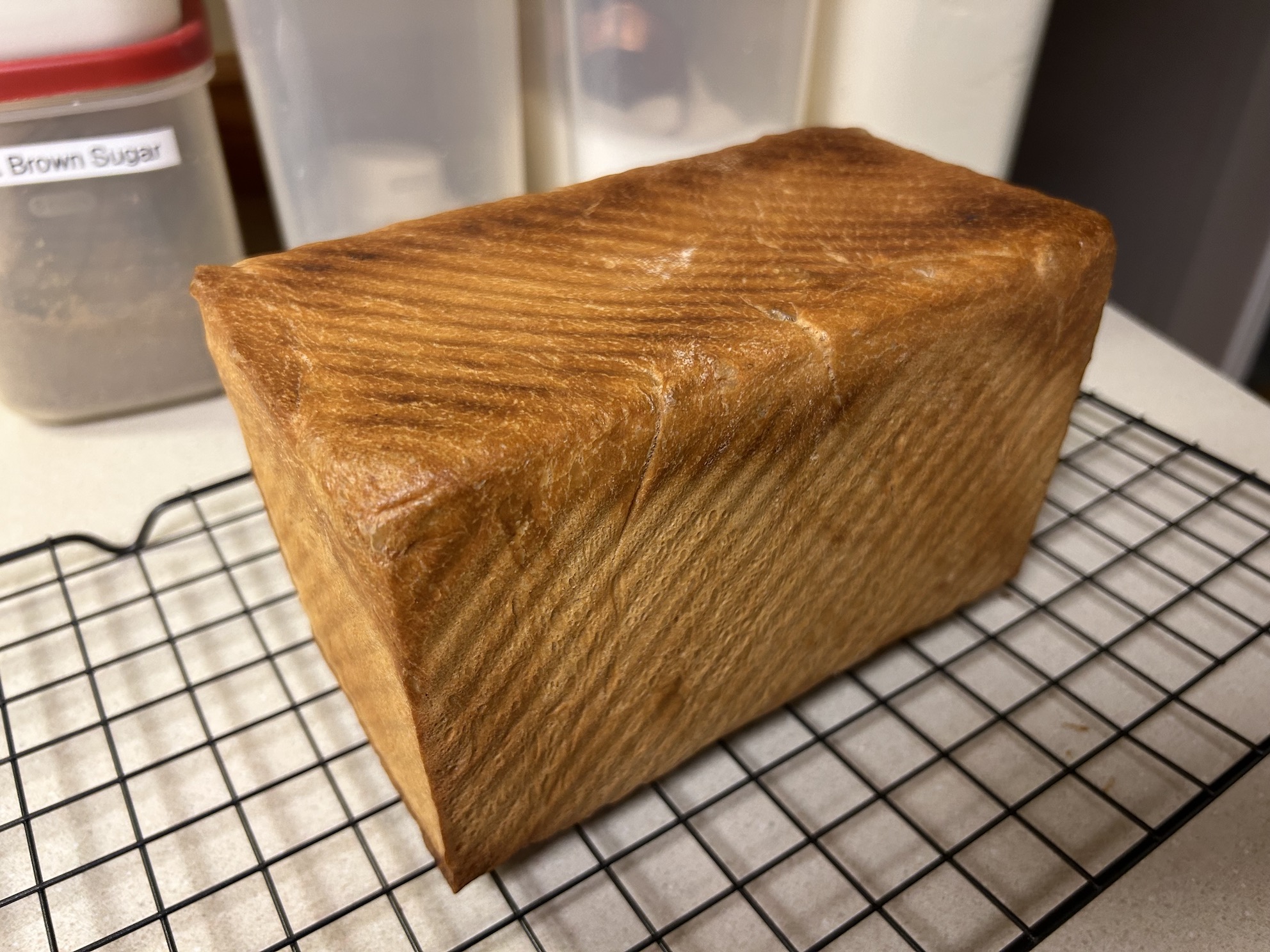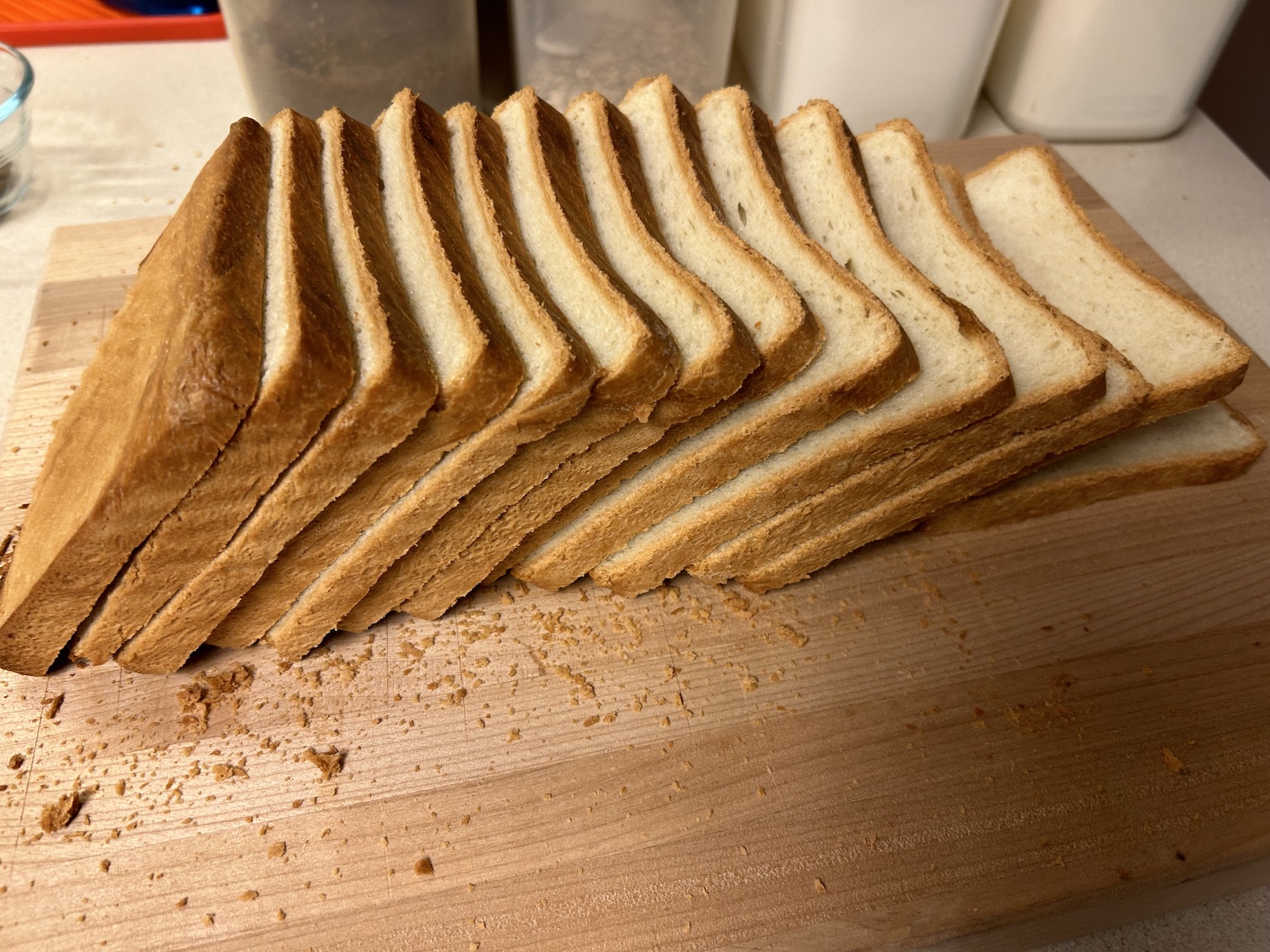Hello everyone,
I'm thankful to have found this site, with its recipes, lessons, and forums. I just started baking bread in January after giving my wife Ken Forkish's book Flour Water Salt Yeast as one of her Christmas presents this past year. We love to cook and bake together and gave each other a few kitchen-related gifts. When my wife saw Ken's book, she said, "Ah, this book is not the gift, but the bread you'll learn to bake.” There started my journey into bread baking as a retired electrical engineer.
I purchased the twelve-quart and six-quart Cambro tubs and two Banneton proofing baskets. We were already using a digital kitchen scale and digital thermometer. We also had a six-quart and a four-quart Dutch oven.
My first two loaves were the Saturday White Bread. The crust was dark with deep flavours, and the crumb was open and a delight to chew. I couldn’t believe I baked bread! I then baked the Overnight White Bread. Wonderful!
I also baked the white bread with 80% biga. This bread was to die for! I first baked two loaves, as I had been doing with the other recipes, but then I decided to proof the entire lump of dough and bake it in the six-quart Dutch oven. Surprisingly, this 3.5-pound loaf was my best bake so far. In the image below, the crack in the crust is from where the dough stuck to the linen in my improvised large proofing bowl, which caused a tear when I turned it out onto the counter. I love the look of it. I have not yet had any of my loaves crack open, as shown in the book’s cover photo.


I've since purchased Evolutions in Bread, and baked my first pan loaf of butter bread. I'll never buy bread in the store again...


I look forward to getting to know some of you and to learning more about the art and science of bread baking.
Tom
You clearly have the touch! Great looking loaves.
Thank you, Gary. A beginner's touch, I think. There's so much more to explore.
To come to the dark side (meaning ryes and whole grains, of course)!
Hi Econprof! I want to try ryes. Do you have a favourite recipe?
If you are looking for a classic Jewish sour rye, can't go wrong with TFL member David Snyder's adaptation of George Greenstein's recipe:
https://www.thefreshloaf.com/node/57389/jewish-sour-rye-update
But you do need a sourdough starter for that and I'm not sure if you have one. This is a delicious spiced rye that you don't need a starter for (the link includes both starter-and non-starter versions):
https://breadtopia.com/sourdough-rye-bread/
For more recipes and information, you can check out this site, which is a favorite of many TFL members:
http://theryebaker.com/
Although many of the recipes on there require a starter, several do not.
And finally, you can peruse the TFL community bake from last year. (Community bakes never officially close, so you can add your own bakes to this one if you are so inclined.)
https://www.thefreshloaf.com/node/69775/community-bake-rye-bread
If you find that you enjoy ryes, I do recommend creating a rye starter. They tend to be more easygoing and lower maintenance than wheat starters (and you can always convert a rye starter to a wheat starter if you need one). Rye benefits from acidity so having one will really expand the range of breads you can make.
Thank you!
I'll second the motion on rye breads and starters. I hesitated to create a sourdough starter because most of the maintenance schedules seemed onerous. But I really wanted to bake high% rye breads and those doughs invariably need a starter culture. I was successful on my first try creating a rye starter and find that it is very forgiving of neglect if stored in the refrigerator.
I have enjoyed making many rye breads from theryebaker.com as well as from Ginsberg's book The Rye Baker. I also have found several German- and Russian-language blogs (several are listed on theryebaker.com) that have many interesting rye breads.
Welcome! Those breads are great results right off the bat!
I'm also interested in the science of bread baking (retired synthetic chemist). I'm still learning a lot after resuming bread baking after a 30+ year hiatus.
If you are interested in whole grain baking, I highly recommend Peter Reinhart's book Whole Grain Breads. I had difficulties producing a decent whole wheat bread until I tried his method.